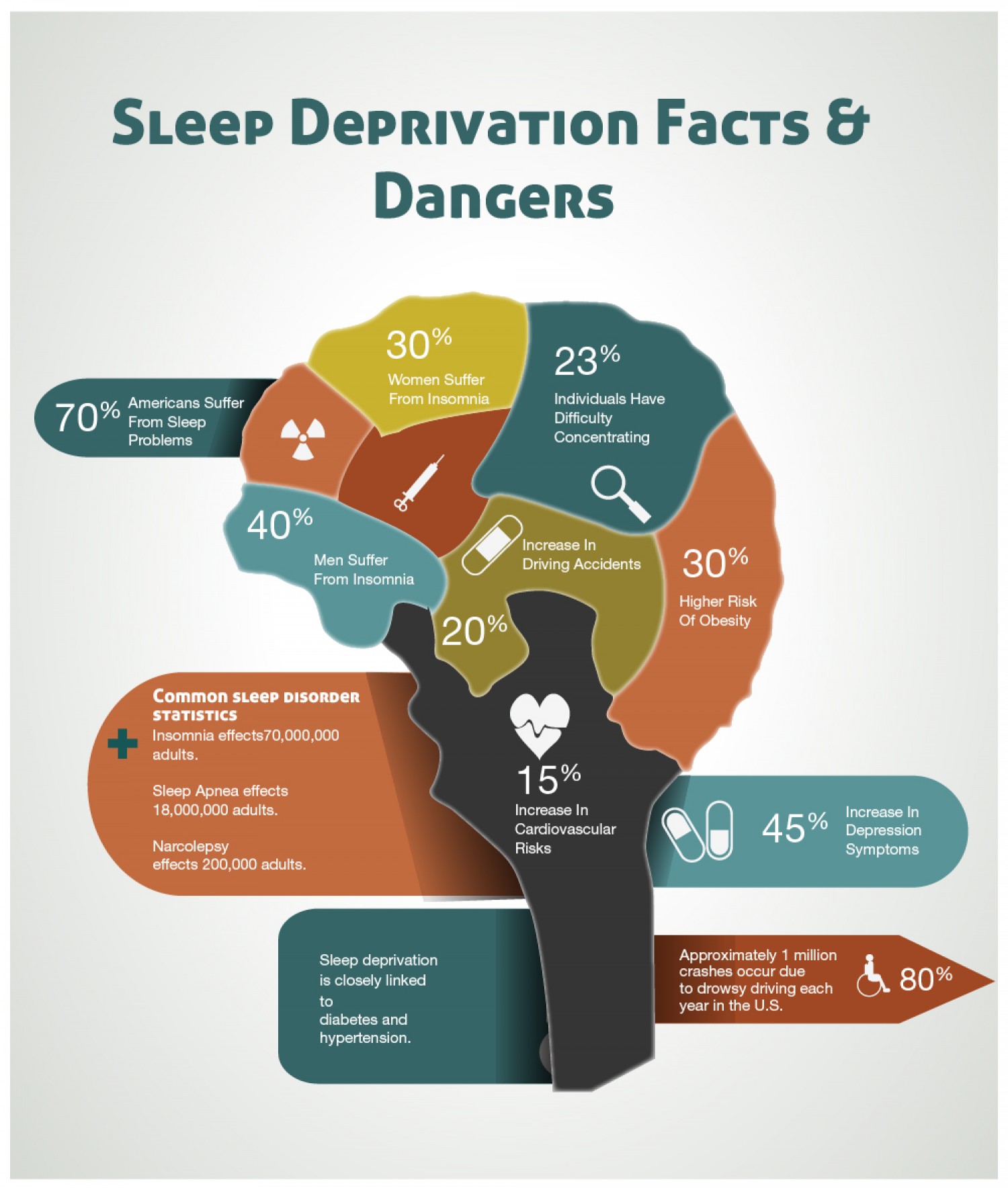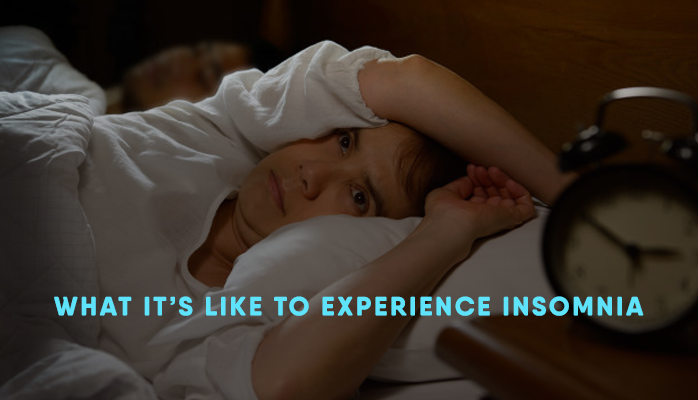What is Insomnia?
Insomnia is being unable to fall asleep, stay asleep, or sleep in until the morning (i.e., waking up wide awake at 3am). Insomnia is frustrating, because you want to sleep, but can’t. As insomnia leads to more sleep deprivation over time, this disconnect between wanting to sleep and actually sleeping can become extremely pronounced. Unfortunately, insomnia can have consequences far more severe than just frustration.
- Chronic – it is a problem most night and lasts more than a month
- Acute – it is a problem most nights that lasts for a few days to a few weeks, but goes away
Sometimes insomnia has a clear underlying cause, and sometimes it doesn’t.
The major concern with insomnia is severe sleep deprivation.
What are Risks of Insomnia?
Chronic sleep deprivation is the main concern for insomnia. Chronic sleep deprivation can result in [SleepEducation]:
- Daytime sleepiness
- Chronic fatigue and lethargy
- Lack of motivation
- Problems with attention, memory, or concentration
- Concerns and frustrations related to sleep (or lack of it)
- Erectile dysfunction
- Problems with anxiety and depression (or worsening of these issues)
- Reduced sex drive
- Moodiness
- High stress levels
- Erratic sleep cycles
Over time, chronic sleep deprivation can cause havoc on your emotional and physical health. Some ways insomnia can affect you are:
- Impaired immune system
- Lower athletic performance
- Lower cognitive performance
- Depression and anxiety
- Reduced endurance
- Various health problems, such as increased risk for diabetes and cardiovascular disease
- Shortened life span
- Weight gain or weight management difficulties
- Safety problems (moderate sleep deprivation causes same behavior as driving under the influence of alcohol)
- Worse performance at work, be it physical or mental work
- Lower endurance
- Lower emotional, physical energy
- Chronic ADHD-like symptoms (children are sometimes misdiagnosed with ADHD because they are chronically sleep deprived)
- Slower recovery periods after working

What It’s Like to Experience Insomnia
There are so many different types of insomnia, and causes of insomnia, that it’s impossible to paint a simple picture about the experience. That being said, there are some commonalities and themes in insomnia that people often deal with.
The first is aging-related insomnia. This type of insomnia generally results in waking up much earlier (such as 3am) fully awake, unable to get back to sleep, and not feeling as rested by sleep. This happens because as we get older our bodies undergo hormonal changes that affect the way we sleep, namely that we:
- Don’t sleep as deeply
- Don’t sleep as long
In other words, unless you adjust your sleep schedule, such as by taking naps, you will experience insomnia.
The second type of insomnia, and one that most people think of, feels like you simply can’t get to sleep. Your mind is racing, your body is tired, and/or you can’t get comfortable (such as because of pain) but you simply cannot fall asleep. You might roll around for a couple of hours or longer. All of us have experienced this from time to time, but insomnia would be like experiencing this almost every night for a couple of weeks on end, or every night for months or more!
The third common expression of insomnia is not being able to stay awake. You might have no trouble going to sleep, but wake up several times or more throughout the night – and unlike simply rousing and immediately falling back to sleep, with insomnia you may actually have to go through the process of falling all the way back asleep each time you rouse.
Generally, people’s insomnia looks something like one of these scenarios or is a combination – but these scenarios describe different common ways people experience insomnia.
What to Do If You Have Insomnia
There’s no golden ticket if you have insomnia. If there is a clear cause for your insomnia, fixing the cause may fix the insomnia. Otherwise, getting plenty of exercise, avoiding stress, practicing relaxation techniques before bed, and ensuring that you have a good sleeping environment are all good ways to help promote sleep.
If have chronic trouble sleeping, reach out to our sleep specialist to get started on the road to a better night’s sleep. Start by taking this free online sleep test:


